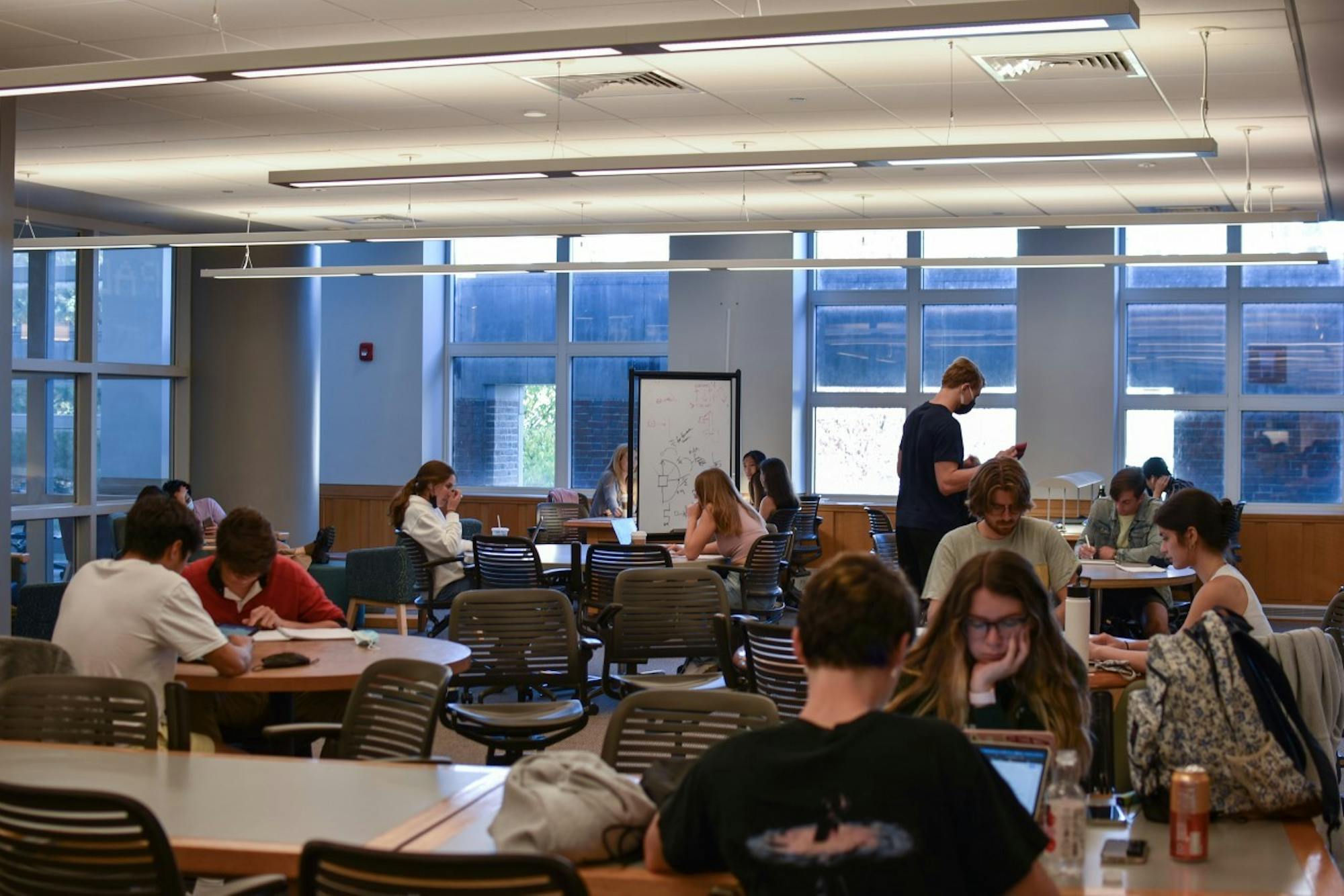The spring term marks the height of this year’s investment banking recruiting process, when members of the Class of 2025 interview with select investment firms to get hired as summer 2024 interns. This year, the investment banking recruitment process began earlier than in years prior.
According to Francina Kolluri ’25, who recruited for summer 2024, the recruiting timeline has been pushed forward, as the process this year is beginning nearly a month earlier than it did previously. Jihwan Choi ’24, who will intern at Bank of America this summer, noted that Goldman Sachs opened its application in July for those recruiting in the Class of 2023, April for the Class of 2024 and March for this year’s cycle.
“I think that it really just has to do with the pressure to retain the best talent,” Kolluri said. “I think that's a really hard part of running a bank because of the competition on the street … Everyone basically offers the same salaries. The differences are so marginal.”
Most firms have either recently opened their applications, such as Goldman Sachs on March 15, or begun conducting interviews with applicants. A few firms, such as J.P. Morgan Chase, already gave out several offers to students in the Class of 2025 in late winter.
Elias Emery ’25, who recruited this year and received a summer offer at J.P. Morgan Chase, said the firm’s applications opened the first week of January. During his only round of interviews on Jan. 24, he spoke to three bankers with various levels of seniority. The following Monday, the firm contacted him to notify him of his offer.
Choi said recruiting involves extensive networking, practice of behavioral questions and knowledge of “the technicals” — questions meant to gauge an applicant’s understanding of the work they would perform on the job.
If selected for a summer role, interns often work to secure a full-time position at the firm following graduation, Choi said. He added that it is strategic to apply to as many investment banks as possible, saying that roughly 20 firms offer summer intern positions. Many students also apply for non-investment banking roles at the same firms, such as those in trading or equities research, Choi said.
“It is especially tough because obviously you can be doing all this [preparation] but not get the interviews,” Choi said. “So there’s doubt that’s hovering in your mind and motivating you throughout this entire process.”
Emery said that the technical component proved especially difficult for him, adding that he believes the liberal arts curriculum at Dartmouth does not well prepare students for the process.
“There are kids from schools like Wharton taking finance classes starting freshman fall,” Emery said. “Their curriculum is more tailored [for recruiting]. We have to do a lot more out-of-school work to understand the technical components, whether it be independent research, reading the news or just joining clubs.”
Associate director at the Center for Professional Development Eric Eisendrath wrote in an email statement that the CPD offers students support in this process in three ways. Career Coaches offer individualized meetings that can take the form of resume reviews, cover letter reviews or mock interview prep. In addition, the Handshake Resource Library offers resources for preparation, including the CPD Prep for Summer 2024 Banking Internship Recruiting document, Eisendrath wrote. He also wrote that the CPD also discusses the importance of networking with students and directs them primarily to LinkedIn, Handshake and Dartmouth Connect.
Emery said he did not find the CPD particularly useful in his recruiting process, apart from small banking events arranged with Dartmouth banking alumni. Choi added that he believes Dartmouth’s “biggest” resource is its alumni network, who he said are eager to speak with and support students if contacted via LinkedIn or email.
Kolluri also spoke about the guidance and support the Dartmouth community offers for students interested in potentially entering the investment banking space.
“The network here for finance is so tight-knit that if you even had the slightest interest, someone would help you get into the industry,” Kolluri said. “I think that’s really special. You don’t get that at every school.”
For Kolluri, her identity as “a woman and a person of color going into the industry” made her recruiting experience different from that of many other applicants. She cited that she felt a need to be more “cautious” when entering the investment banking space, though attending diversity events hosted by the investment banks eased some of her concerns.
“It’s a little bit of a weirder space to be in, in the sense that you don’t [know] if you're saying the right things,” Kolluri said. “But being yourself is a really big part of the recruiting experience. No one wants to hire someone that’s putting on a fake face.”
Kolluri noted the importance of finding a firm that fits one’s culture and mindset, somewhere where one is “going to have the most influence or force” throughout their banking tenure.




